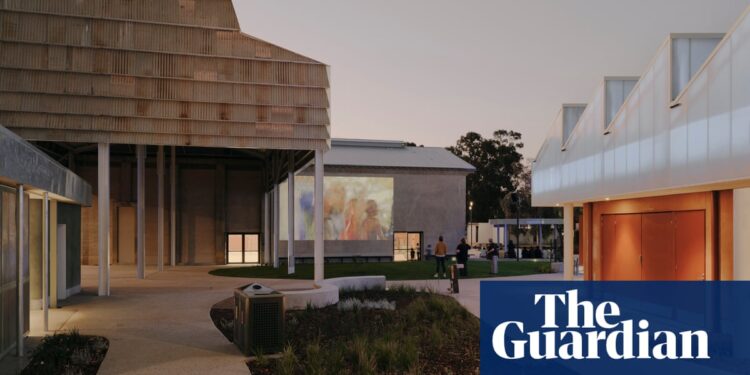With its whirring engines and towering smoke stacks, Mildura’s power station was rarely out of the news as a technological marvel of the early 20th century.
When a new engine was installed to help light up the regional Victorian city in June 1925, the local newspaper proclaimed there would finally be enough “juice” for everyone.
“Now practically anyone in the town area can be connected,” the Sunraysia Daily reported.
A century on, the Powerhouse on the banks of the Murray River has again been lauded for feats of design and engineering that boost connection.
Powerhouse Place, an events and exhibition space on the site of the old station, has taken out two categories at Australia’s major architectural awards.
The cultural precinct, designed by firm Public Realm Lab, won prizes for sustainable architecture and urban design at the Australian Institute of Architects’ national awards on Thursday night.
The Mildura project restored some of the site’s original structures and featured Australia’s first use of hempcrete – a sustainable construction material – for a public building.
The judges said it was a “meaningful and inclusive” place for the community.
“It steps lightly and defines an exemplary approach to the sensitive transformation of our country’s colonial and industrial past,” the jury citation said.
Several regional buildings featured on the winners’ list, alongside a top award for the renovation of a 19th century Sydney mansion to house Atlassian chief executive Mike Cannon-Brookes’ private offices.
A sleek artists’ space in South Hedland, in Western Australia’s Pilbara region, won the top award for steel architecture.
Spinifex Hill Project Space, which is designed to connect locals and visitors with the region’s rich creative scene, uses steel to manage the challenging climate, while also creating a striking form.
The building, by Officer Woods architects, is both elegant and practical, the judges said.
“The architects’ extensive consultation with the community and artists has resulted in a design that is not only functional, but also deeply resonant with its cultural context,” the jury citation said.
A unique beach house built with handmade clay bricks won the top award for interior architecture.
Burnt Earth Beach House on Victoria’s Great Ocean Road, designed by Wardle, earned praise for its skilful design, including the use of furniture specifically made for the home.
The award-winning projects proved architecture’s ability to connect, jury chair Stuart Tanner said.
“In an increasingly divided Australia, this year’s winners show us architecture can be a vessel for social cohesion, with multiple examples of public buildings where thoughtful and welcoming design unites people, bringing disparate communities together,” Tanner said.






